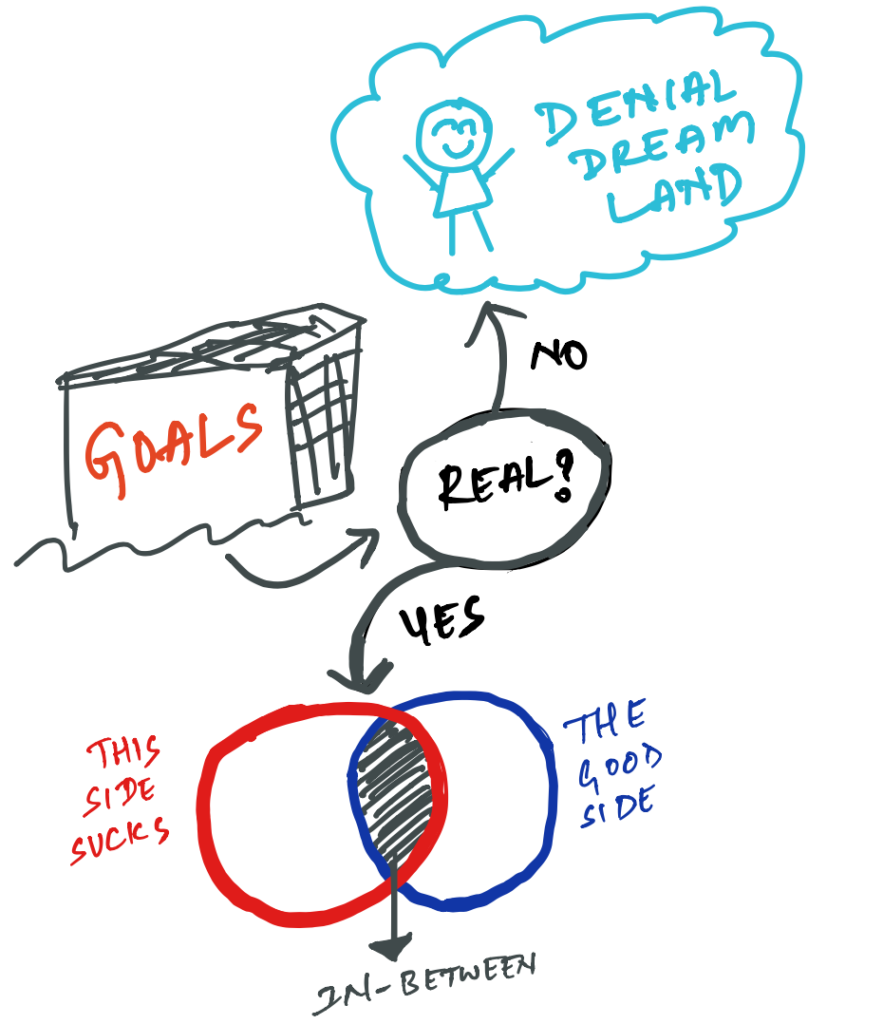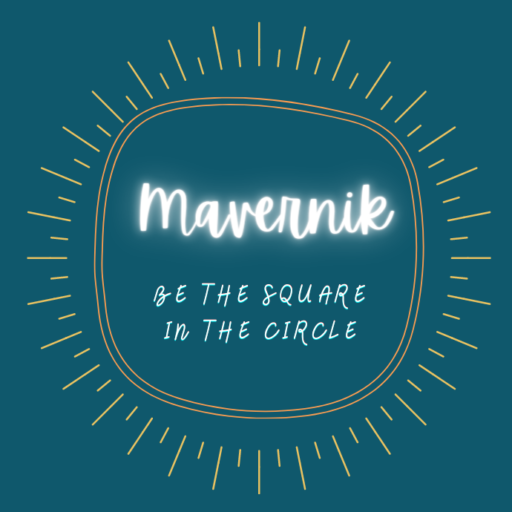Intro
Let’s start off by asking ourselves the question, ‘Are goals real?’
This meta-study suggests goals contribute significantly to personal motivation and performance. There is also another possibility for folks who are unconvinced though, which is not a problem as long as they are happy.
The problem is not this though, there are a lot of sucky bits about goals and a lot of ‘not so sucky’ bits too and then some in between. In this essay, we’ll try to break it down and then look at ways to navigate them.

Looks familiar?

This is me after I realized that I had to take action for a back problem starting to manifest.
I set a goal to get rid of it. Long story short, this is the result after 3 months 😎
However, everything is not well in the goalverse 😅.
There’s a paradox about goal-setting; we either set them too high (read New years’ resolutions) or too low to make them seem more like a check-list item.
And then there’s the current VUCA world.
We know there is merit in setting goals, so giving up on that is not an option. Where do we go from here then?Let’s explore the goalverse to understand better and set ourselves up for success.
This sucks
It’s the beginning of a New year, and you’re brimming with hope and renewed energy, perhaps after an excellent night’s party hanging out with friends and family.
All too familiar? Let’s see why.
Too many goals are classic FOMO behavior. We are in our high energy states inclined to see ourselves as superheroes, beings with unlimited energy and resources. This is a state to be when teasing out our inner desires and wants; a powerful tool to clear our heads. But using this strategy for goals, well it will only lead to failure.
It’s a challenge to visualize the future (read long term), and to connect today’s goals with that is a whole other level. Here’s my story.
Back in 2018, I weighed close to ~96 kilograms, which technically meant I was overweight.
I binge-watched quite a few hours of YouTube and set a goal to lose 18 k.g.’s to get to my ideal weight within the next month (because I learned that goals have to be SMART, more on this later).
And, so I began my journey, I ate once a day, went for runs in the morning, avoided all junk food (even the ones I loved the most). Did I hit my target? Absolutely not. Did it make me happy? Not as much as I wanted to 😢 Did it make a difference? A little.
Did I continue? Yes, for a bit, and progress was slow. The extrinsic motivation ended and so did progress.
That one serving of fries when you’re on a diet, one day of missed exercise, one day of not writing your journal, one impulsive buy at the mall; that’s all it takes for him to pounce. And setting idealized goals will only give him ample opportunities to do so.
In our heads, goals more often framed this way – “When I achieve [x], I will be happy”. (This mindset applies to a bunch of other things, which warrants it’s own post).
This is restricting our happiness by design; best-case scenario, you achieve the outcome, feel happy momentarily and then feel lost like the feeling you get after binge-watching your favorite series on Netflix.
I had set myself a goal of waking up early, specifically, at 5 a.m.🌅
Day 1-5, success, yeah I’m on a streak! I’m superhuman! 🎉
Day-6, super heavy workday, an evening workout and I’m exhausted.😵 I end up waking up at 06:30 a.m.
Many of you must be thinking, hey that’s not too bad, right? Wrong! I beat myself up pretty bad for breaking my streak.
What if you benched your target weight but could only finish half the reps, missed to beat your best time on the 5k run by 2 minutes, heck missed making the bed 2 times in a row. These arbitrary success criteria give you angst.
Some things seem ‘goal-worthy’ but the question to ask is, how do we define the success/failure criteria? 🤔
The good
Not everything sucks though, there are things that make setting goals worth it. And here is where, we look at them from a different angle.
By far, the biggest peg in favor of goals is that they can be a map to set a direction 🧭 where we want to go. They can act as guides we can often refer to to make sure we don’t get lost.
My ‘wake up early goal’ was exactly that; to wake up early, not to hit a specific time. So, I tweaked my approach to work towards it.
Ever feel, the goals are customized to who you are or want to be? Nope! If yes, then your organization is way ahead of the curve👍🏼 The point is that the goals you set yourself are not what define you. They don’t make or break who you are.
It is your decision to own them not the other way around. Working our way in the opposite direction, when we think of our personal lives, we can leverage goals to link them to different life areas, like health, finances, learning, etc.
I’d say, this applies more to my To-do list than a goal. If the bar is set to ‘attainable’, is it really worth pursuing in the first place?
Try telling your manager that you’ll meet the budget within 40% of the target for next year. 😜
Enter, the BHAG (Big Hairy Audacious Goal), a goal so big like ‘Put a man on the moon’; makes it more like a dream statement, yet, is possible on a long enough time horizon, which generates energy and excitement. These have a success rate of only about 70%.
Truth is, you don’t. No one does. We do the ‘work’ which is a part of the project. In other words, the project or the ‘goal’ we tend to think of is an outcome.
How you do the work, is then the ‘process’. Keeping a distinction between both gives us much needed control when steering the ship.
Outcome = Destination (Lag; we know only after we get there or miss it)
Process = Journey (Lead; it is in the current, in the ‘doing’)
I want to do a headstand is my outcome goal.
Sign up for yoga practice and practice 3 times a week is my process goal. Heck, even if I never achieve the outcome (worst case), I’ll still be better off thanks to the practice. F-you Sauron.
But what about the intersection?
Think about things like – be a good partner, be a good friend, make meaningful connections, experience a different culture, have a good time, find peace, and so on.
Apparently, the most intimate and important parts of our lives. These reside in the fuzzy zone. These are more like ‘standards’. I will cover the method of managing them in a future post.
Take action
For austerity of action, I plan to have only 3 BHAGs for 2021, covering the most important aspects of my life.
To make it simple for you, download the Nail your BHAGs process flow.
Happy holidays and an awesome 2021! 🙌🏼



Well written Nikhilesh. Thought provoking. You have chosen the right topic at the right moment that can help many.
Love it!